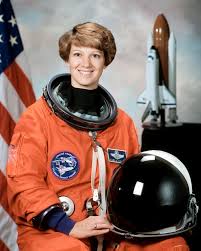Eileen Collins: The Trailblazer of Space Exploration

Introduction
Eileen Collins has made a significant mark in the world of space exploration, becoming a symbol of inspiration for aspiring astronauts and women in STEM. As the first female commander of a Space Shuttle mission, her accomplishments hold great importance in advocating for gender equality in science and aviation fields, making her a prominent figure not only in American history but in the global narrative of space travel.
Early Life and Education
Born on November 19, 1956, in Elmira, New York, Collins developed an early interest in aviation and space. She earned a Bachelor of Science degree in Mathematics and a Master of Science in Operations Research from Syracuse University. Her esteemed career began as a U.S. Air Force pilot, where she logged over 6,750 flight hours, further solidifying her dedication to aviation.
NASA Career
Collins joined NASA in 1990, where she quickly distinguished herself. In 1995, she flew aboard the Space Shuttle Discovery as a pilot, becoming the first woman to do so. Her groundbreaking moment came in 1999 when she commanded the Space Shuttle Columbia on STS-93, marking the first time a woman led a space mission. Under her command, the mission successfully deployed the Chandra X-ray Observatory, one of NASA’s great observatories, allowing for unprecedented exploration of the universe.
Legacy and Significance
Eileen Collins’ contributions extend beyond her impressive flight record. She broke gender barriers, inspiring a new generation of female scientists and astronauts. Following her retirement from NASA in 2006, Collins has focused on motivating young women and promoting the importance of space exploration across various public platforms. She has received several accolades, including the U.S. National Space Grant Distinguished Service Award and induction into the U.S. Astronaut Hall of Fame.
Conclusion
As space agencies around the world aim for the Moon and Mars, the significance of pioneers like Eileen Collins cannot be overstated. Her journey showcases the essential role of women in achieving advancements in space exploration. Looking ahead, Collins’ influence continues to shine as organisations prioritise diversity and inclusion in their missions. Readers are encouraged to reflect on her story as we move towards a future where gender equality prevails in all fields of exploration and innovation.








